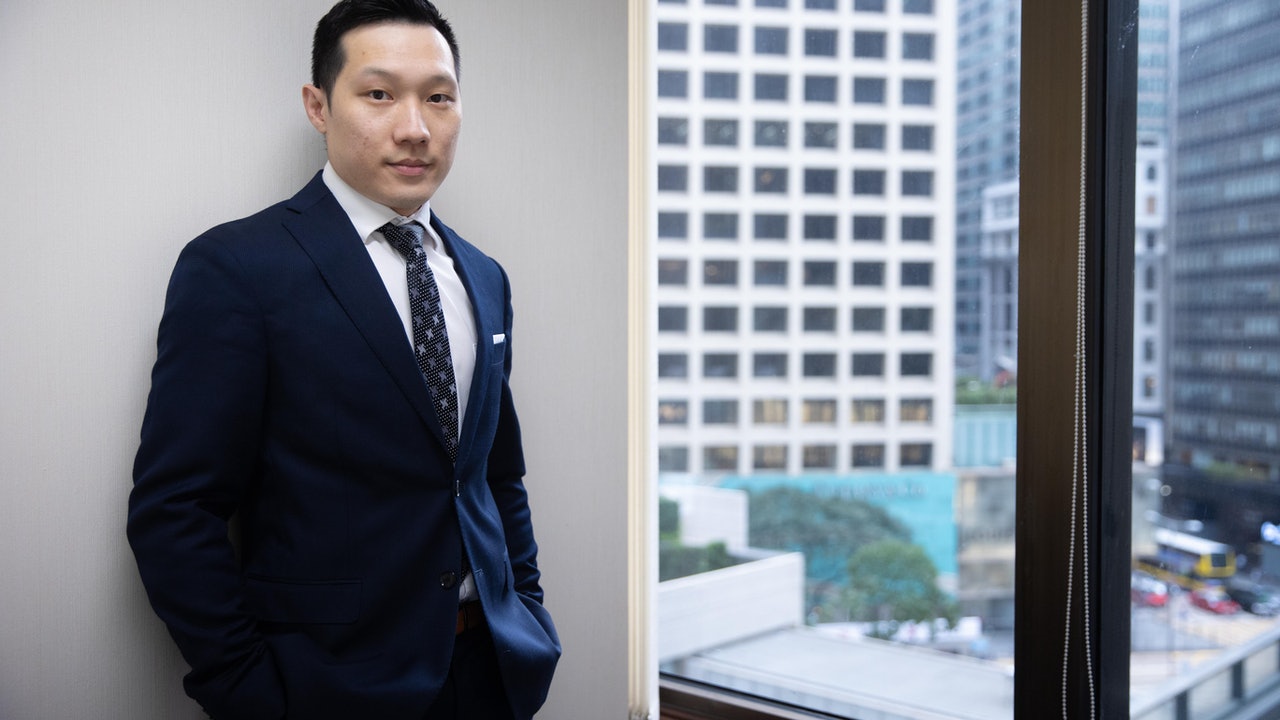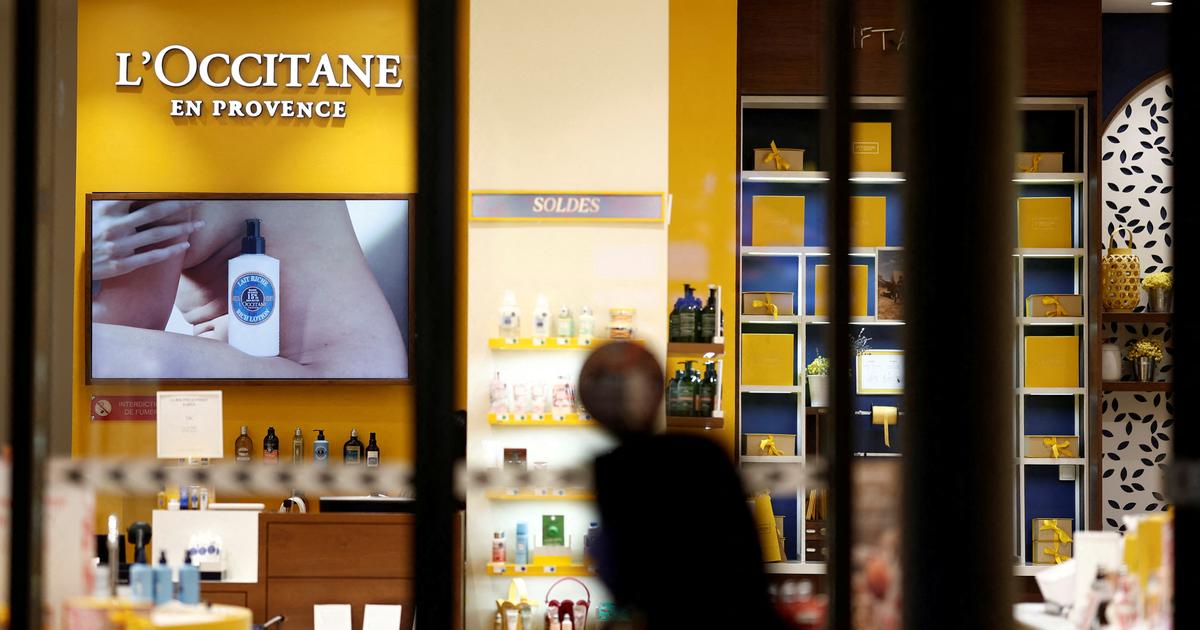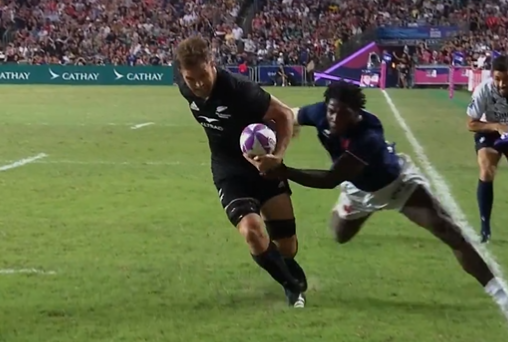Special interviews
Author: Zhan Yongyu
2021-04-12 12:32
Last update date: 2021-04-12 12:33
In recent years, there have been more and more cases of dereliction of duty by auditors of listed companies, and even the Big Four accounting firms have repeatedly been involved in the controversy of fraudulent numbers.
Last year, the Chinese chain coffee shop Luckin blew up fraud. The outside world is concerned about the extent of the responsibility of Ernst & Young (EY), which is responsible for its audit. In February of this year, Deloitte China was accused of improper auditing, involving three listed companies.
Looking back at the local area, the Financial and Exchange Bureau, which is responsible for overseeing auditors, recently conducted a high-profile investigation on issues related to the annual reports of Guanhua International (0539) and Convoy Global (1019).
The company's accounts are falsified, and retail investors are not surprised, but behind it is "derived" a way of making money, all because of the sniping of negligent auditors, and the amount of compensation is "billions of voices" at any time.
Hong Kong-based hedge fund Argyle Street Management (ASM) has been involved in this "business" since 2015. Rarely interviewed by behind-the-scenes "snipers", they dismantled this "money path" that multiplied returns to "Hong Kong 01".
The "local ginger" ASM has always been invaluable. In addition to attacking listed companies, it has also attacked negligent auditors in recent years.
(Photo by Luo Junhao)
ASM, a fund company established by Ye Weiyi, one of the founders of Value Partners Group (0806), is different from traditional fund companies that invest in large companies. It has always liked to "challenge" the difficult, early snipe the late Gong Ruxin's Danfeng Holdings (0271) , Now known as "Asia Securities Real Estate", succeeded in selling and paying special dividends; afterwards, it aimed at CMB (0026) under the Yan family and took the initiative to attack.
Both sniper attacks have made ASM shine, but investment in all roads leads to Rome, is it only one move?
In recent years, in addition to grabbing the SPAC head soup, it has also expanded another "financial path" by engaging in Litigation Funding (litigation funds), relying on "sniping" delinquent auditors to obtain compensation.
ASM executive director Huang Kekai (Kurkye) found that in addition to selling the company's assets, the liquidator can also seek compensation through civil litigation to increase revenue.
(Photo by Luo Junhao)
Contacting the liquidation company and discovering "windfall"
One of ASM’s original business was to buy the debts of the liquidated company at a low price, and then sell the assets to earn the difference. "We will do enough homework to study how much money can be recovered from these debts in the case of the company’s liquidation. In the early years, Taixing Optics and Gold In liquidation cases such as Supreme, it is to make money by buying debts at low prices."
The operation of buying and selling is simple, why did you embark on the road of sniping auditors?
Kurkye, the executive director of ASM, who was once engaged in forensic accounting, discovered when doing this "business" that after the liquidator sold the company's assets, the distribution of cash to the creditors was not the only way to benefit.
If the auditor's negligence in the audit process caused damage to the company's assets, the liquidator can claim compensation through civil litigation, and the compensation received can increase the amount recovered by the creditor.
And since most companies entered the liquidation process, the coffers were close to the "dry pond", and they wanted to sue the auditors for not having enough money. When the liquidator would not "make money" and help the liquidation company to file a lawsuit, he would look for "lawsuits". funds".
Huang Kekai recalled "the masterpiece"-the sniper's first show line (0444) auditor, "Sold out assets are enough to recoup the capital and add meager profits, but the liquidator said that this time he did not want to send money out. I want to save a small amount of money for the lawsuit, so I think I have already recovered the money, so I want you to try it.” As a result, the liquidator not only won the lawsuit, but also earned more profits than the original assets. As a result, Huang Kekai daredly suggested to the boss to do a big deal. "Rather than being a creditor, it is better to be a funder to do the deal business!" He said with a smile.
There have been cases of company fraud in Hong Kong from time to time. If the company is blasted of negligence during the audit, the amount of compensation will be “billions of billions of voices” at any time.
﹙Profile Picture﹚
Aka’s settlement amount is rumored to be close to 1.6 billion
According to the information, the liquidators of Taixing Optics and Jin Zhizun have both sued the auditors for negligence. Among them, the liquidators of Taixing Optics demanded KPMG's compensation of HK$472 million.
The liquidator of Jin Zhizun also filed a lawsuit against PricewaterhouseCoopers in the High Court.
However, the largest compensation case in Hong Kong is the 2009 Yajia (delisted) case.
After Yajia was exposed to fraudulent accounts, the liquidator claimed US$400 million (HK$3.113 billion) from the auditor of Hong Kong Ernst & Young. In the end, EY chose to settle. The amount of the settlement is as high as US$200 million (HK$1.557 billion), which is believed to be the historical settlement amount in Hong Kong. The largest case of accountant professional misconduct.
Huang Kekai said that in the process of falsifying figures, the directors of listed companies have the opportunity to be behind the scenes, but if the auditors cannot find out, there is a chance that they are negligent.
(Photo by Luo Junhao)
Earning money is the key to winning
ASM has been "hunting" since 2015, and the investment per order ranges from hundreds of thousands of US dollars to several million US dollars, usually in the range of 3 million to 7 million US dollars. So far, it has attacked ten times.
He revealed that the profit of each order varies, but at least doubled.
Based on the investment of 3 million US dollars and double the return, a single order can earn at least 23 million Hong Kong dollars.
On the surface, this business is highly attractive and risky. The formula for making money is to find out whether the auditors of the liquidated company are negligent. However, they can be compensated by accusing them. "?
The ball is round, and the lawsuit is the same. If you lose the lawsuit, it will be done in vain. Funder needs to bear all related litigation costs and also have the opportunity to compensate the other party's legal fees, which can be described as high risk and high return!
Huang Kekai disassembled and said that in the process of falsifying figures, the directors of the listed company may be behind the scenes, but the auditors cannot find out, and there is a chance that they are negligent, so the liquidator can sue both parties at the same time.
However, many listed companies are now listed in Hong Kong by mainland companies, and their directors are all mainlanders. After the accident, mainland directors will "do nothing" if they run away with them.
Therefore, as Funder's role, when looking for objects in the liquidation company stack, in addition to judging whether the litigation odds are high, the more important thing is whether they can obtain compensation from the litigation objects after winning the lawsuit.
"Ten business can only accept one order, because the point is not whether the lawsuit is won or lost, but whether there is money to pay for it!"
The strategy adopted by ASM is "big food", because the larger accounting firms will have professional indemnity insurance, and the insurance company will have a certain amount of insurance after the accident.
(Photo by Luo Junhao)
"There are big food and big food" has two major benefits
In addition to assessing whether there is money to be paid after the lawsuit, there is also knowledge in selecting the litigation object.
All due to the fact that the auditors have the opportunity to lose the lawsuit and have no money to pay, so the strategy adopted by ASM is "there is a big deal", because the larger accounting firms will have professional indemnity insurance, and when the accident occurs, the insurance company will There is a certain amount of insurance.
At the same time, reputable auditors know that there are really deficiencies in the procedures during the audit process, and they would also like to settle as soon as possible to avoid allegations of negligence in court or being publicized in the newspapers. In order not to affect their reputation, most of them will lose money. Keep things quiet."
Therefore, Huang Kekai will only lock large auditors and have the opportunity to get into negligence cases.
"Prey" usually locks in companies that have been found to be suspected of fraud before liquidation, such as the collective jump of the board of directors and executives, the resignation of auditors, failure to issue audit reports on time, and failure to issue reports with unqualified opinions.
"Be careful to evaluate whether the company has done it before. After checking the legal documents and evidence, you can only do it if you have a chance of winning. It will take three to five years for a single order, because even if you falsify it, you won’t be sure to win. You need to prove it. And the auditors won't win if they don't perform their duties," Huang Kekai said.
Since 2015, ASM has successfully obtained compensation for every order, and has never missed it. It can be described as "a hundred shots and a hundred hits"!
The only "failed" case was that the lawsuit was won, but the compensation was not as much as expected.
The ingenuity may be that even if the lawsuit may not be 100% successful, the auditors will pay compensation if they choose to settle.
The Hong Kong audit market of the FRC is highly concentrated. In 2019, the audit fees of Category A accounting firms (more than 100 auditing listed entities) accounted for 80.2% of the market.
(VCG)
Big Bank monopolizes 80% of the audit market in Hong Kong
In fact, Litigation Funding is nothing new in foreign countries. Omni Bridgeway, which is based in Australia, has Litigation Funding businesses all over the world. The Group's Return on Invested Capital (Return on Invested Capital) from 2016 to 2020 is as high as 132%.
Burford Capital, which is listed in the UK, has a return on capital of its Litigation Funding business of approximately 93%.
Hong Kong is not very popular. In addition to the lack of relevant talents, the line between Litigation Funding and the maintenance and champerty prohibited in Hong Kong is blurred, and people in the industry may not dare to blog.
"To be clear, it is illegal to assist in litigation or to cover the lawsuit in Hong Kong. However, in a few special circumstances, Third Party Litigation Funding is legal, one of which is to fund a company that is in the liquidation stage to go to court." Huang Kekai explained.
Having said that, the FRC issued a report on the policies and governance of the audit market for listed entities in Hong Kong earlier, mentioning that the audit market in Hong Kong is highly concentrated. In 2019, Category A accounting firms (the number of audits provided to listed entities exceeded 100) Jia﹚’s audit fees accounted for 80.2% of the market, and the number of listed entity audits it was responsible for accounted for 71.1%.
With regard to 105 listed entities with a market value of more than 50 billion yuan and employing auditors of local public interest entities, except for two, four Category A public interest entity auditors provide audit services.
The figures reflect that larger accounting firms have nearly monopolized the Hong Kong market. If listed companies continue to explode and commit fraud, under the principle of "big food", ASM has no shortage of "investment" themes.
Deloitte Ernst & Young







/cloudfront-eu-central-1.images.arcpublishing.com/prisa/3I74UEXLYRBBRPGPSGWNN6WXH4.jpg)